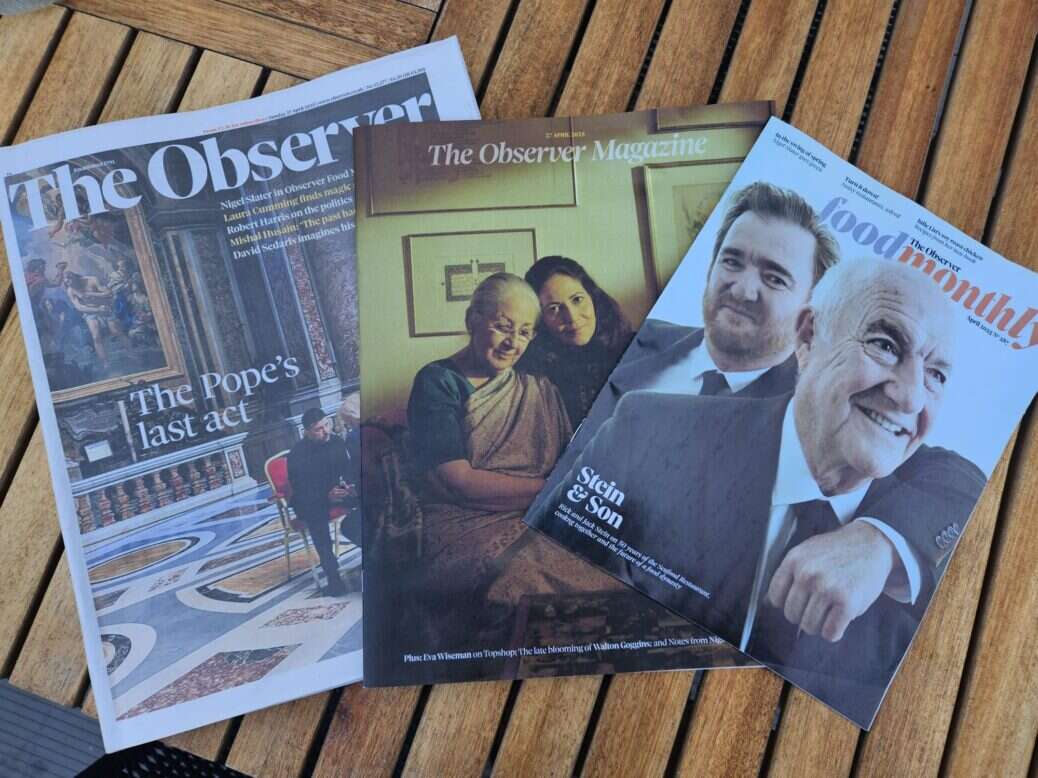
Observer editor-in-chief and major shareholder James Harding set out his stall in the first issue under its new Tortoise ownership on Sunday.
He said the paper was leaning into traditions of liberalism and editorial independence which date back to its foundation in 1791.
And Harding signalled his commitment to the print edition by retaining all of its sections and adding a new data-led 16-page supplement about the London Marathon being held that day.
The paper itself has been upgraded to the “best available in Europe”, Harding said, albeit alongside a 20p cover price increase to £4.20.
Quoting former editor and owner of the title David Astor, he described the ethics of the paper as “roughly designed as trying to do the opposite of what Hitler would have done”. Harding said the Observer’s politics will be “liberal, “progressive” and “internationalist”.
Signalling his commitment to the print edition (which is believed to sell around 100,000 copies per week), Harding said: “We believe in the paper. We are not only committed to print, we want to improve it.
“We know the pleasure of thinking when reading a paper that is blissfully uninterrupted by digital alerts.”
[Read more: Tortoise plans for The Observer: ‘We can buck the market trend’]
The title only launched its first website on Friday, initially for free with a paywall planned to follow in several months. This means that for the present its entire annual revenue of around £16m a year is dependent on the print edition.
The title announced the launch of a bookshop in its first edition (something former owner The Guardian also runs). Harding said that ObserverTV, more podcasts alongside the existing Tortoise roster, an Observer app and live events are planned.
Tortoise has around £25m to invest in the title and its future sustainability is likely to depend on attracting online subscribers.
A daily Observer email newsletter has been launched, The Daily, showcasing its best writing alongside existing Tortoise daily email edition The Sensemaker (which is also a podcast).
Expanding on The Observer’s editorial philosophy, Harding said: “We generally think it’s better to laugh at the world than shout at it. We agree with Chimamanda Ngozi Adichie [the Nigerian novelist] that ‘dignity is as important as food’.”
According to Harding, George Orwell once described The Observer as “the enemy of nonsense” and this quote appears at the top of page two of the new-look edition.
The first Observer under Tortoise had an image-led poster front page with a picture of Donald Trump meeting Volodymyr Zelenskyy inside the Vatican.
Similar photos led The Sunday Telegraph, Sun on Sunday and Mail on Sunday – although none opted for the full-page magazine-style treatment.
Highlights of the first edition included: an investigation by Alexi Mostrous into allegations of coercive behaviour against women by Andrew Tate’s brother Tristan, a colour piece about the Pope’s funeral by Conclave author Robert Harris, an in-depth interview with Labour Lord Maurice Glasman by Rachel Cooke and an essay on the future of Europe by former president of global affairs at Meta Nick Clegg.
This last feature drew scorn from former Observer writer Carole Cadwalladr, who broke the Cambridge Analytica scandal in the paper. She said: “The man who laundered Mark Zuckerberg’s reputation is now being reputation laundered by the paper which broke Facebook’s biggest scandal.”
Email pged@pressgazette.co.uk to point out mistakes, provide story tips or send in a letter for publication on our "Letters Page" blog
